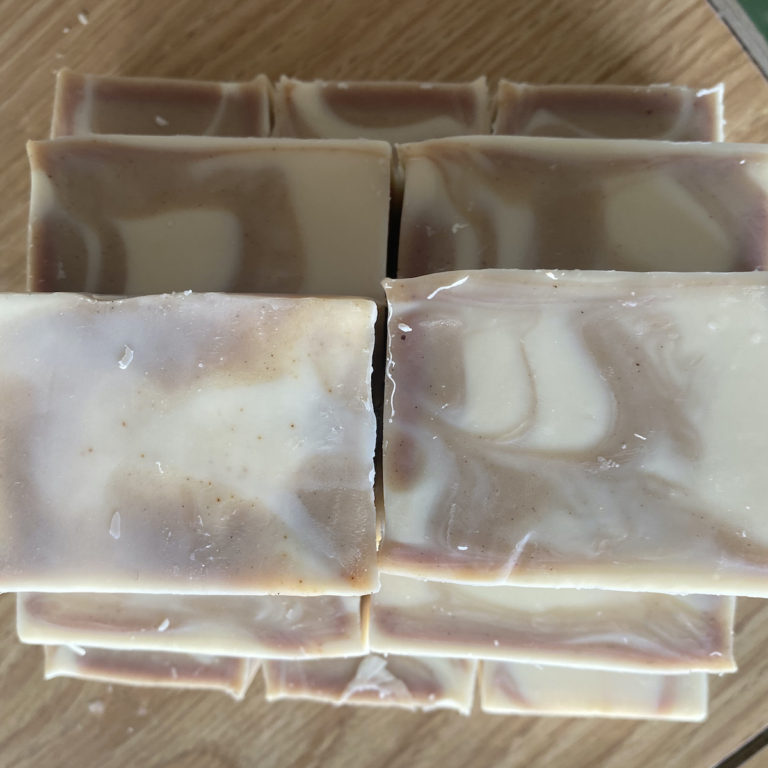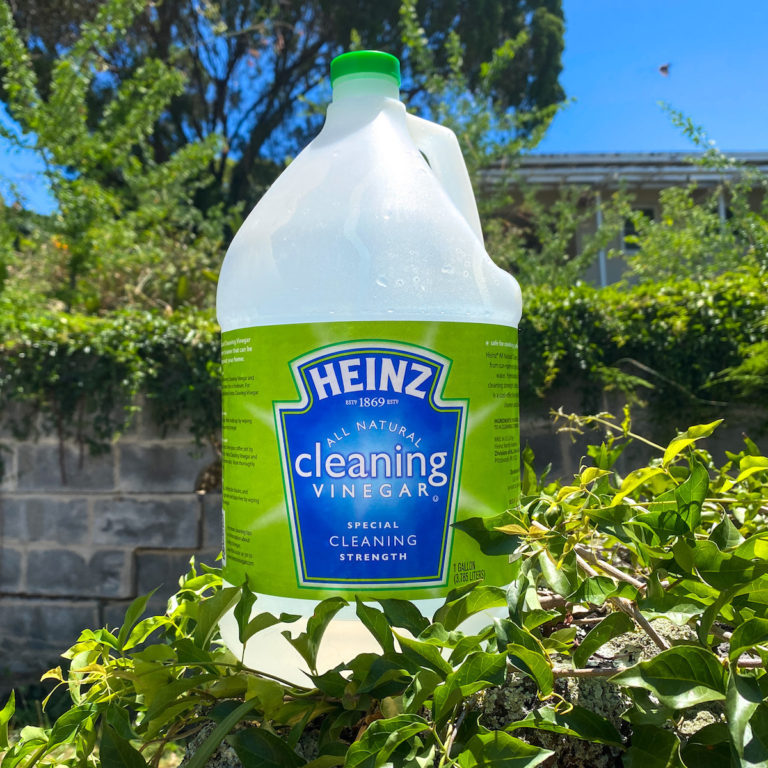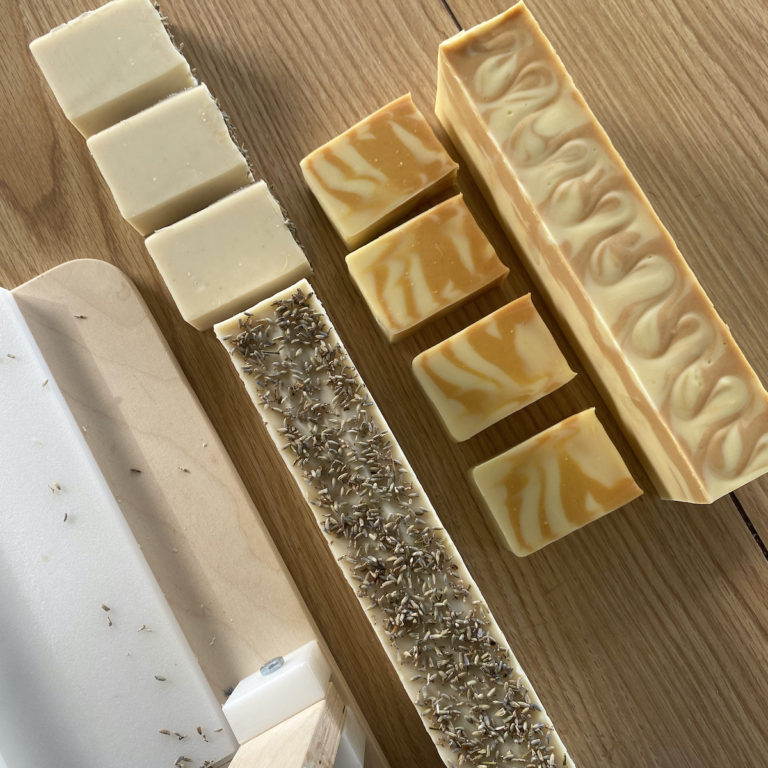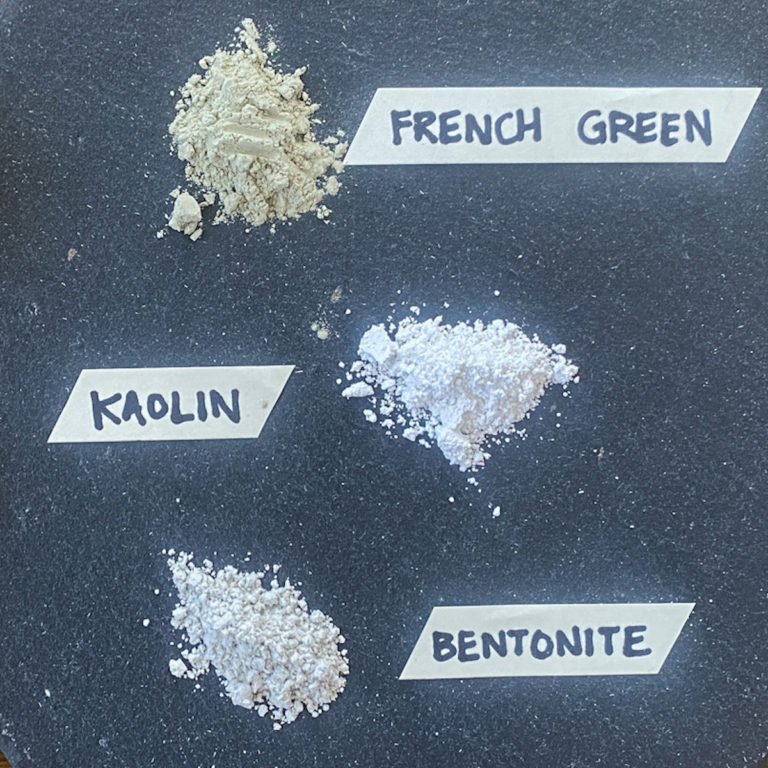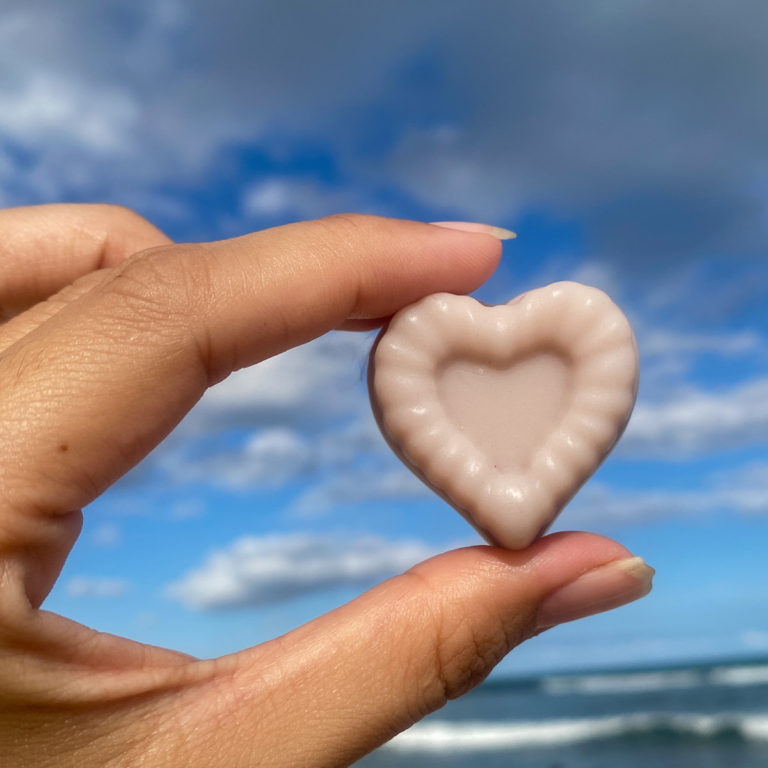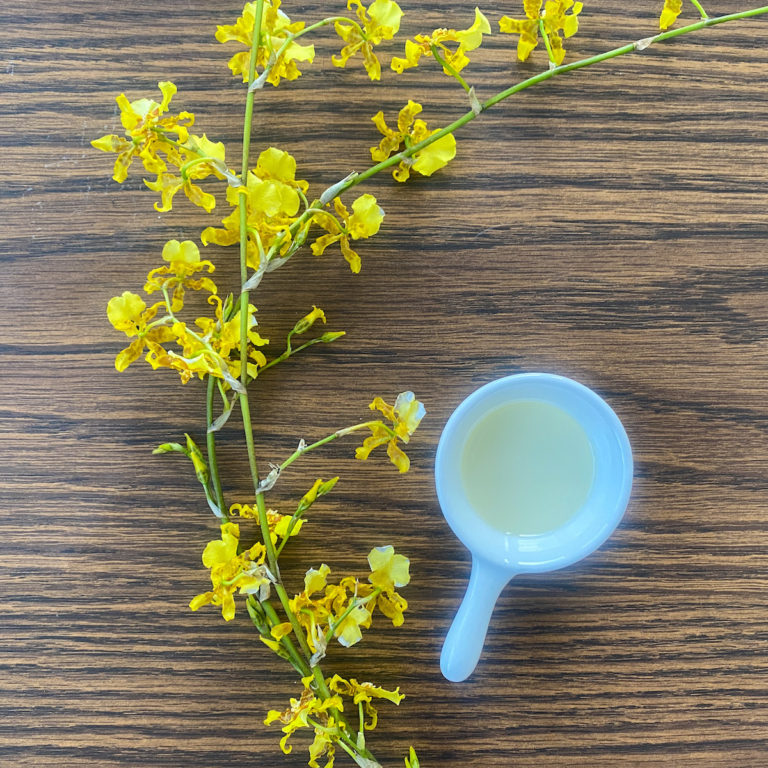Are Handmade Soaps Antibacterial? Here’s The REAL Deal
Handmade soap is a fantastic natural product that cleanses and nourishes the skin. Whether you make it yourself or support a local artisan soapmaker, there are many great reasons to use homemade soap. However, in a world where we’re watching every germ and bacteria to prevent illnesses, you may be wondering if homemade soap is antibacterial.
Homemade soaps are not antibacterial, but they work hard to wash away germs and other contaminants that may make you ill. Since the US Food and Drug Administration banned 19 supposedly antibacterial additives from over-the-counter soaps in 2016, I strongly feel you’re better off with plain soap anyway.
Throughout this article, we’ll dive more into this question. You’ll also learn the following information:
- What makes a soap antibacterial
- Does soap need to be antibacterial to kill germs?
- How natural homemade soap removes germs
- Perks of handmade soap
- Downsides of antibacterial soap
- Frequently asked questions
What Makes a Soap Antibacterial?
According to the United States Food and Drug Administration, soap that’s considered antibacterial has added chemicals included to reduce or prevent bacterial infections.
Before they were banned in 2016 from use in products used with water, two of these commonly used chemicals were triclosan and triclocarban. Names of other additives that used to be used were fluorosalan, tribromsalan, and poloxamer-iodine complex. View the complete list of banned chemicals here on Healio’s website.
Some supposed antibacterial ingredients are still allowed by the FDA, so you may still see soaps marketed as an antibacterial on store shelves today. These soap types usually clearly say “antibacterial” on the label and have a Drug Facts label.
Could you see yourself adding an ingredient like benzalkonium chloride, benzethonium chloride, or chloroxylenol to your next handmade soap recipe? Or are one of those listed as an ingredient on your artisan soapmaker friend’s bar of soap? We didn’t think so!
One of the main reasons so many people adore homemade soap is because it washes away dirt and germs while being pure, natural, and nourishing with no added harsh chemicals. Therefore, homemade soap is not classified as antibacterial since it doesn’t (usually) have these chemical additives.
If It’s Not Antibacterial, Does It Kill Germs?
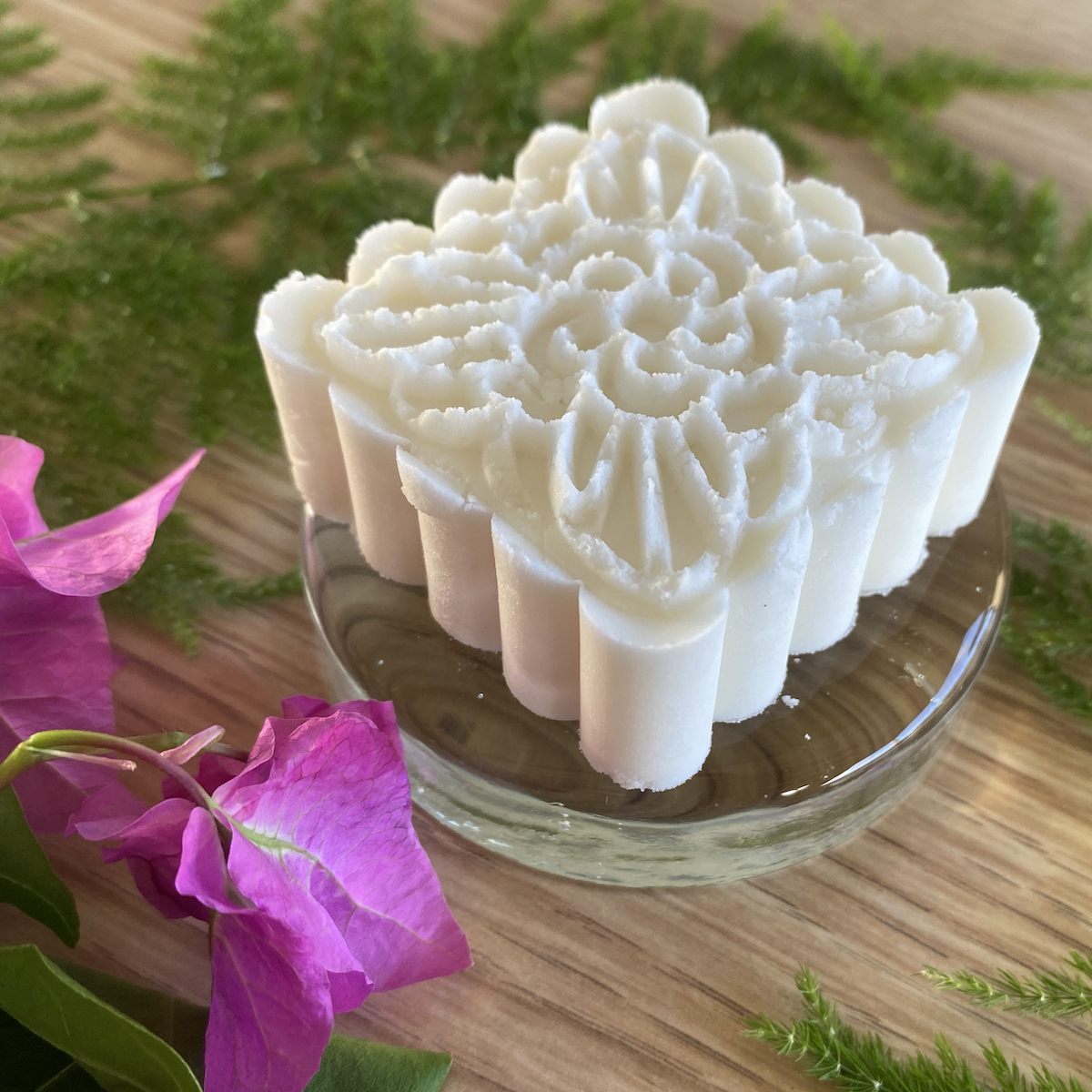
It’s time to look closely at what you think you know about germs and antibacterial products. We told you above that homemade soaps are not antibacterial, but did you know this is actually a good thing?
The FDA tells us that there is no concrete research confirming that the supposed antibacterial additives are any more effective at preventing illnesses and the spread of some infections than using plain soap and water.
In fact, in 2013, when the FDA was looking closely at antibacterial soap products, they issued a ruling requiring soap manufacturers to provide direct evidence showing that antibacterial soaps were better at reducing germs and infections than plain soaps were. They were given one year to submit their findings, and guess what? There was no conclusive evidence found.
One study found that antibacterial soap with triclocarban was exactly as effective as plain soap in cutting incidences of children’s pneumonia and diarrhea in half. The ban on antibacterial chemicals was implemented for this reason and other environmental and health-based reasons that we cover below.
Diann Peart, Ph.D. at Truce, reminds us that while antibacterial soaps haven’t been proven to have any significant effect on killing bacteria, they don’t stop viruses in their tracks, either. This is true when it comes to viruses like the coronavirus.
Janet Woodcock, MD, director of the FDA’s Center for Drug Evaluation and Research (CDER), says, “Consumers may think antibacterial washes are more effective at preventing the spread of germs, but we have no scientific evidence that they are any better than plain soap and water. In fact, some data suggests that antibacterial ingredients may do more harm than good over the long-term.”
Therefore, instead of asking if homemade soap is antibacterial, we suggest you instead ask how it cleanses away germs.
How Does Plain or Homemade Soap Cleanse?
Harvard University does a great job explaining how soap molecules work. Real, pure, natural soap molecules have two ends – one that mixes well into water and one that doesn’t. This means they can quickly dissolve and loosen most types of molecules to make it simple to wash them off your hands.
As a chemical property, yes, homemade soap does loosen up bacteria and viruses off your hands so they can be washed away. Behaviorally, when you use soap rather than just rinsing with water only, you tend to wash your hands longer so you can thoroughly lather and rinse it all off. This, in turn, washes off the contaminants. Therefore, simply put, regular soap does not kill bacteria or viruses, but it helps you wash them off your skin.
Perks of Using Homemade Soap
You know now that homemade soap is effective at washing off bacteria and viruses, but are you aware of a few other perks?
Homemade Soap Is Packed With Natural Ingredients
The ingredient list of homemade soaps includes ingredients you and your family can feel great about. They are almost always derived from nature and support healthy, nourished skin. There won’t be any crazy long chemicals you can’t pronounce in homemade soap!
You Can Find Homemade Soap in Many Shapes, Sizes, and Versions
Part of the fun of homemade soap is you can make it yourself to any specifications you wish, or ask your local artisan soapmaker for a variety you seek. Are you looking for something with added shea butter for sensitive, dry skin? Or how about something that smells like fresh lavender buds? Smaller bars, bigger bars, shaped bars? No problem. When it’s handmade, the world is your oyster.
Homemade Soap Supports Local Artisans
When you buy handmade soap, you support a local (or long-distance) soapmaker, and that’s a beautiful thing. If you make it on your own, you can support local vendors as you purchase the ingredients. Your world and your community thanks you for using homemade soap.
What Are the Downsides of Triclosan Previously Used in Antibacterial Soaps?
Besides perhaps being ineffective at killing and preventing bacteria, there are rising concerns about environmental and health-related risks that antibacterial soap ingredients can pose. Here are a few of those points related to triclosan:
- Studies have suggested the possibility that triclosan contributes to making bacteria resistant to antibiotics. This could mean the effectiveness of medical treatments like antibiotics become less effective.
- Animal cell research has shown that triclosan can negatively impact hormone signaling and other biological processes.
- When we use and wash products containing triclosan down our drains, they transfer into our natural environment. More evidence suggests that the accumulation of triclosan in the ecosystem can negatively impact algae and other aquatic organisms.
The FDA and Environmental Protection Agency have been working together very closely to collaborate on scientific and regulatory concerns with triclosan in particular. Their careful work will continue to help ensure consistency in regulating it and learning more about it.
FAQs
In addition to what we’ve covered above, here are some of the most frequently asked questions regarding germ-killing properties of homemade soap versus antibacterial soaps, along with their answers.
Why Do You Still See a Handful of Soaps on the Store Shelves Today Marketed As Antibacterial?
A few chemical ingredients that supposedly reduce bacteria were not banned in the FDA’s 2016 ban. These chemicals are still under review, so products with these ingredients can still be sold and advertised as antibacterial.
How Long Does It Take To Wash Away Germs With Homemade Soap?
The Centers for Disease Control and Prevention suggests washing your hands for at least 20 seconds to give the soap a chance to work and wash away germs.
Why Do People Choose Homemade Soap Over Store-Bought Soap?
Since it’s just as effective as antibacterial soaps at killing berms, many people choose homemade soap for the reasons listed in the previous section. Handmade soap is natural, soothing to the skin, and environmentally and community-friendly.
Are There Some Natural Ingredients To Add to Homemade Soap That Have Antiseptic Properties?
According to Diann Peart, Ph.D. at Truce, peppermint and rosemary essential oils both have antiseptic properties. Additionally, Soap Club confirms that coconut oil and olive oil are naturally antibacterial and super nourishing to the skin.
Conclusion
Now you know that homemade soap is not classified as antibacterial, and isn’t it great to know that’s a good thing? The FDA and CDC say we should all continue washing our hands with plain soap and water. Handmade soap is a fantastic, natural option to do so.
Theresa Michele, MD, of the FDA’s Division of Nonprescription Drug Products, says, “Following simple handwashing practices is one of the most effective ways to prevent the spread of many types of infection and illness.” So grab that bar of homemade soap and get to sudsing!
Sources
- Team USA: Antiseptic vs Disinfectant Vs Antibacterial
- Healio: FDA rule banning 19 ingredients from antibacterial soaps takes effect
- Soap Club: Why is Natural Bar Soap Safer than Antibacterial Soap?
- Harvard University: Say Goodbye to Antibacterial Soaps
- FDA: FDA Issues Final Rule on Safety and Effectiveness of Antibacterial Soaps
- Tom’s of Main: 4 Myths About Switching to Natural Soap

